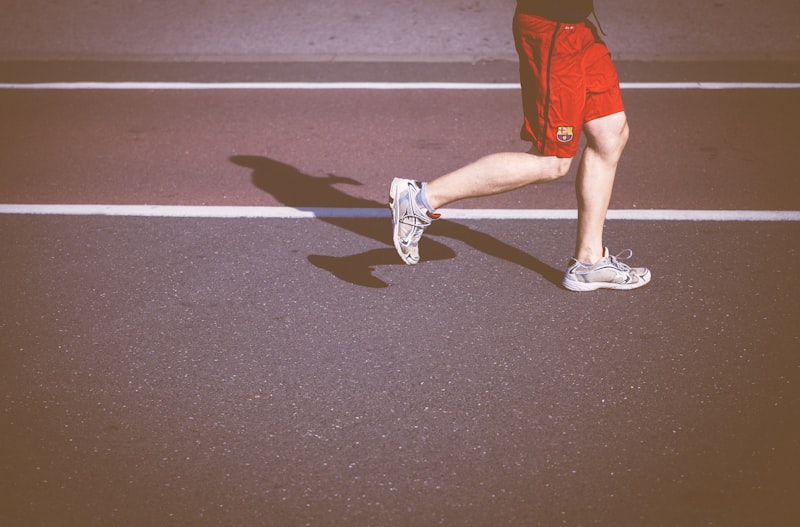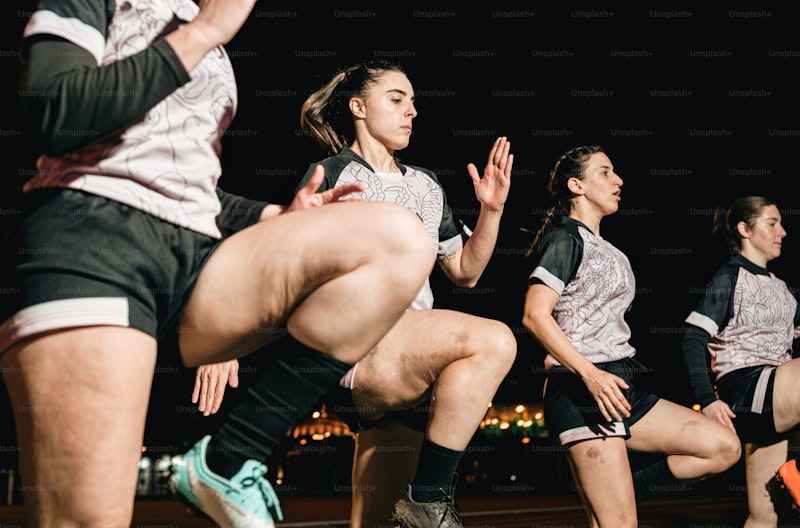
Are you looking to take your athletic performance to the next level? Incorporating yoga into your training regimen could be the secret weapon you’ve been searching for. Yoga isn’t just about flexibility and relaxation; it’s a powerful tool that can significantly enhance your athletic abilities and aid in faster recovery.
One of the key benefits of yoga for athletes is improved flexibility. A flexible body is less prone to injuries and can move more efficiently. Yoga poses such as downward dog, pigeon pose, and warrior stretches target muscles and joints, increasing flexibility over time. Imagine your muscles becoming supple like a well-tuned instrument, ready to perform at their peak without the risk of strain.
Beyond flexibility, yoga promotes balance and stability. Poses like tree pose or eagle pose challenge your core strength and proprioception, which are crucial for maintaining stability during dynamic movements in sports. Improved balance translates to better agility and precision in your athletic performance, whether you’re making a sharp turn on the field or landing a perfect jump.
Moreover, yoga is a proven method for reducing stress and enhancing mental focus. Athletes often overlook the mental aspect of training, but a calm and focused mind can make all the difference in competitions. Practices like deep breathing and meditation in yoga help athletes manage stress levels, stay composed under pressure, and visualize success.
In terms of recovery, yoga promotes circulation and helps flush out toxins from muscles. Gentle yoga sequences or restorative poses aid in post-workout recovery by reducing muscle soreness and promoting faster healing of micro-tears in muscles. Think of it as a reset button for your body after intense training sessions, allowing you to bounce back stronger for the next challenge.
Incorporating yoga into your training schedule doesn’t mean replacing your current workouts; rather, it complements them by offering a holistic approach to fitness. Whether you’re a runner aiming to improve flexibility, a basketball player working on balance, or a weightlifter focusing on recovery, yoga can be customized to meet your specific athletic goals.
Ready to elevate your performance and recovery? Embrace yoga as more than just a workout but as a transformative practice that enhances your body and mind. Start today and experience the profound impact of yoga on your athletic journey.
Unlocking the Athlete Within: How Yoga Boosts Performance and Recovery
Yoga isn’t just a trend—it’s a powerhouse for athletes looking to elevate their game. Picture this: athletes pushing their limits, running faster, jumping higher, and enduring longer. Yoga steps in like a silent coach, refining strength, balance, and mental focus. It’s not about bulky muscles (though you’ll gain strength); it’s about enhancing every aspect of your physicality.
Performance isn’t just about physical prowess; it’s a mental game too. Yoga sharpens this mental edge, honing concentration and reducing stress. Picture your mind as a race car—yoga tunes it to perform smoothly under pressure, staying calm yet sharp during crunch times.
Recovery—the holy grail for every athlete. Yoga’s secret sauce lies in its ability to accelerate recovery. Those deep stretches? They flush out lactic acid and release muscle tension, promoting quicker healing and reducing the risk of injury. It’s like hitting the refresh button for your body after a tough workout.
Ever wondered why top athletes from LeBron James to Cristiano Ronaldo swear by yoga? It’s not just hype. Yoga’s benefits transcend sport, aligning body and mind to perform at their peak. Imagine your body as a finely tuned instrument, each pose and breath refining its performance.
From Mat to Medal: The Impact of Yoga on Elite Athletes’ Recovery
Yoga, once seen as a practice reserved for spiritual seekers and flexible enthusiasts, has now found its place in the rigorous training routines of elite athletes worldwide. Beyond the serene mats and meditative poses, yoga has emerged as a powerful tool for enhancing recovery among top athletes aiming for the podium.
One of yoga’s most profound benefits lies in its ability to facilitate physical recovery. After intense training sessions or competitions, athletes often experience muscle soreness and fatigue. Yoga postures, such as gentle stretches and deep breathing exercises, help to alleviate these symptoms by improving blood circulation and reducing muscle tension. This promotes quicker recovery and prepares athletes for subsequent training sessions or events.
Moreover, yoga plays a crucial role in mental recovery, which is equally vital for elite athletes striving for peak performance. The mindfulness and focus cultivated through yoga practice can enhance athletes’ ability to manage stress and maintain emotional balance. This aspect is particularly beneficial during high-pressure situations, allowing athletes to stay calm and focused, thereby optimizing their performance.
In addition to physical and mental recovery, yoga contributes to overall performance improvement. The flexibility gained from regular practice enhances athletes’ range of motion, agility, and balance, all of which are critical in various sports disciplines. By integrating yoga into their training regimen, athletes can achieve better body awareness and prevent injuries, ultimately prolonging their careers at the highest level.
Achieving Peak Performance: Yoga’s Secret Role in Athletic Excellence
Have you ever wondered how elite athletes manage to reach the pinnacle of their performance, defying physical limits and achieving feats that seem superhuman? The answer might lie in a practice that’s been around for centuries but is gaining recognition in the modern sports world: yoga. Yes, you read that right – yoga, the ancient discipline known for its gentle stretches and calming breaths, is now being hailed as a secret weapon by many athletes across different sports disciplines.
But what exactly makes yoga so effective for athletes? It’s not just about striking a pose or finding inner peace (though those are certainly important). Yoga offers a comprehensive package of benefits that directly contribute to athletic excellence. From enhancing flexibility and balance to improving strength and endurance, yoga targets every aspect of physical fitness. Imagine a gymnast nailing a flawless routine, or a basketball player making that perfect jump shot – all these feats require not just skill, but a finely tuned body and mind.
One of the key elements of yoga is its emphasis on breath control. In sports, where every second counts and split-second decisions can make or break a game, controlled breathing can be a game-changer. Yoga teaches athletes how to synchronize their breath with their movements, allowing for smoother transitions and increased stamina. It’s like learning to harmonize the different instruments in an orchestra – when everything works in sync, the result is pure magic.

Moreover, yoga isn’t just about physical prowess; it’s also about mental fortitude. In the heat of competition, staying calm under pressure can be as valuable as any physical skill. Yoga’s focus on mindfulness and meditation helps athletes develop mental resilience, enabling them to stay focused and composed even in the most challenging situations. It’s like having a secret weapon tucked away in your mind – a reservoir of calm that you can tap into whenever you need it most.
As yoga continues to gain popularity in the sports world, athletes are increasingly integrating it into their training routines. Whether you’re a professional athlete or just someone who enjoys staying active, incorporating yoga into your regimen could be the key to unlocking your full potential. So next time you see a marathon runner sprinting towards the finish line or a surfer riding the perfect wave, remember – behind every extraordinary feat, there may just be a yogi finding their balance.
Flexibility Beyond the Field: Yoga’s Surprising Benefits for Athletes
One of the key advantages of integrating yoga into an athlete’s training regimen is its emphasis on flexibility. While traditional strength and conditioning exercises focus on building muscle power, yoga complements this by stretching and lengthening muscles, tendons, and ligaments. This increased flexibility not only improves range of motion but also helps prevent injuries that are common among athletes pushing their physical limits.
Moreover, yoga cultivates mental resilience—a critical asset in the highly competitive world of sports. The practice encourages athletes to hone their focus and concentration through mindful breathing and meditation techniques. This mental clarity translates into better decision-making under pressure, whether it’s executing a flawless play or maintaining composure during intense moments of the game.
Beyond physical and mental benefits, yoga serves as a vital tool for recovery. Athletes often subject their bodies to rigorous training sessions that can leave muscles tight and fatigued. Yoga’s emphasis on gentle movements and relaxation techniques promotes quicker recovery by reducing muscle soreness and inflammation, allowing athletes to bounce back faster and perform at their peak for longer durations.
In essence, yoga offers athletes a holistic approach to optimizing their performance. It’s not just about being physically fit; it’s about achieving balance in body, mind, and spirit. By incorporating yoga into their training routines, athletes can unlock a reservoir of flexibility, mental fortitude, and recovery capabilities that traditional workouts alone may not provide.
The Yoga Advantage: Transforming Recovery in Sports
Firstly, yoga enhances flexibility and mobility, crucial for athletes looking to prevent injuries and improve overall performance. The deliberate stretching and controlled breathing in yoga help lengthen muscles and increase joint range of motion, promoting better movement efficiency on and off the field.
Moreover, yoga fosters mental resilience. The mindfulness and meditation aspects of yoga teach athletes to focus inward, manage stress, and stay calm under pressure. This mental training is invaluable during high-stakes competitions and grueling training sessions, enabling athletes to maintain peak performance levels consistently.

Additionally, yoga aids in recovery by promoting circulation and reducing muscle soreness. Post-exercise, gentle yoga poses can aid in the removal of lactic acid build-up and enhance the delivery of oxygenated blood to fatigued muscles, accelerating the healing process.
Furthermore, yoga provides a holistic approach to recovery, addressing both physical and mental aspects simultaneously. Unlike traditional recovery methods that may focus solely on physical rehabilitation, yoga offers a comprehensive toolkit that enhances overall well-being.
Frequently Asked Questions
Can yoga reduce the risk of sports injuries
Learn how integrating yoga into your fitness routine can help reduce the risk of sports injuries by enhancing flexibility, strength, and balance. Discover effective yoga poses and practices that support injury prevention and improve overall athletic performance.
Which yoga poses are best for enhancing recovery after sports
Discover the best yoga poses that aid in enhancing recovery after sports. Learn about effective poses that help reduce muscle tension, improve flexibility, and promote relaxation to support faster recovery times.
How does yoga help in improving athletic performance
Discover how yoga enhances athletic performance through improved flexibility, strength, and mental focus. Learn how specific poses and breathing techniques support injury prevention and overall physical conditioning, making it an invaluable addition to any athlete’s training regimen.
What are the benefits of yoga for athletes
Discover the benefits of yoga for athletes. Learn how yoga improves flexibility, balance, and mental focus, enhancing overall athletic performance. Explore its role in injury prevention and recovery, promoting relaxation and reducing stress levels.
When is the best time for athletes to practice yoga
Discover the optimal times for athletes to integrate yoga into their training regimen for enhanced performance and recovery.


